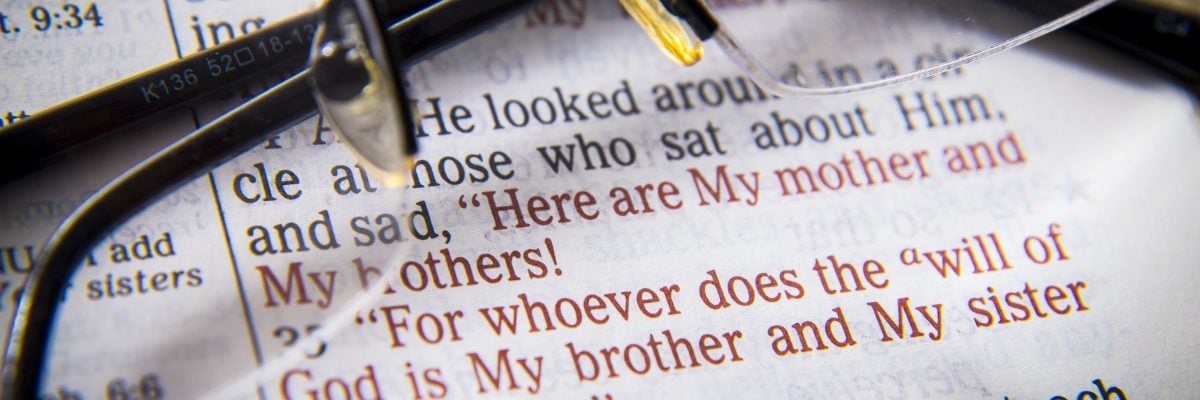
Today’s Gospel contains an incident that many people in Jesus’ day would have found rather puzzling.
Jesus’ mother and his “brethren” (male relatives who, we know from other sources, were not biological children of Mary) show up to see him.
They can’t easily do so because Jesus is inside a crowded house, and so they are forced to stand outside and send him a message.
And a crowd was sitting about him; and they said to him, “Your mother and your brethern are outside, asking for you” [Mark 3:32].
Expect the Unexpected
At this point the expected thing would be for Jesus to drop everything and either go see them or arrange for them to be brought to him.
That would be what would be expected of him as a dutiful son on good terms with his family.
On the other hand, if he was on bad terms with them, he would refuse to have anything to do with them and dismiss the idea of seeing them.
Instead, Jesus does something quite unexpected:
And he replied, “Who are my mother and my brethern?” And looking around on those who sat about him, he said, “Here are my mother and my brethern! Whoever does the will of God is my brother, and sister, and mother” [Mark 3:33-35].
What are we to make of this?
A Deeper Question
Jesus’ action does not fit neatly into either the dutiful son role or the alternative where he doesn’t want to have anything to do with his family.
His action raises a deeper question: Who actually is his family?
Natural family ties are important, which is why God enshrined “Honor thy father and mother” in the Ten Commandments, but they aren’t of ultimate importance.
What is of ultimate importance is our relationship to God, and so Jesus indicates that being part of the family of God–the group of those who do God’s will–is more important than having merely natural ties.
This does not dismiss his own natural family. They are not excluded from the family of God, but neither are they excused from the need to do God’s will.
Jesus and His Natural Family
Since Jesus identified the criterion that makes one a member of his ultimate family, it has been natural for people to ask how his own natural family measured up to it.
We know that his mother, in fact, responded to God’s will perfectly.
We also know that many of his brethren–such as James and Jude–went on to play prominent roles in the Church, so they responded as well.
As interesting as it may be to know whether the members of Jesus’ own natural family were part of his ultimate family, this isn’t the main question for us.
The main question, the one he wants us to ponder, is whether we are.



